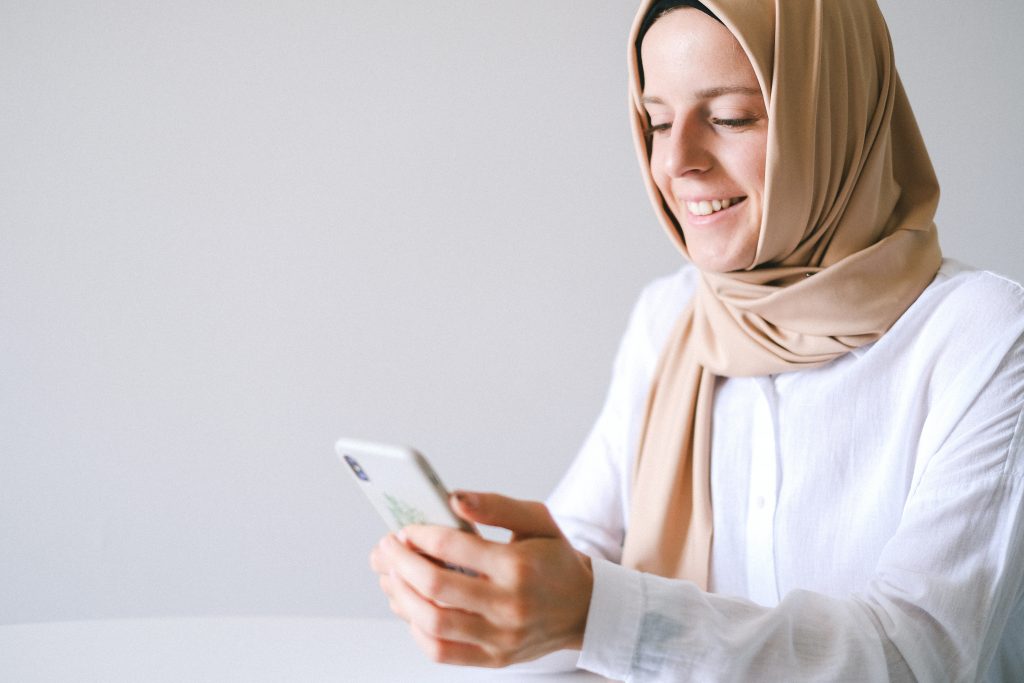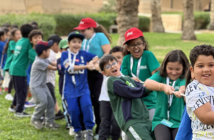BY SEHAM ALMUBARAK
As with any language learner, it is very important to know that the language is not just a communication tool but it is also about a country’s culture.
Takleem, an organization founded by Seham Almubarak, is a platform for Arabic language learning to non-native speakers. They offer Arabic online courses provided by high qualified tutors with experience in teaching Arabic as a second language. With Takleem, you can speak Arabic more fluently, as well as gain confidence in your ability to communicate with Saudi and Arab people.
In this article, let the Takleem team share with you some phrases that are commonly used in Saudi society that you will enjoy incorporating into your speech as they reflect an important part of Saudi culture.
Absher (m) / Abshery (f)
This word is used when someone asks you to do something for him/her and you respond by saying “Absher” if he is a male, and “Abshery” if she is a female. It means “Okay, I will do it, no problem”. It is a polite way to express being fully prepared to do something, which is an explicit expression of generosity and assistance to the other as if you say, “Sure I will do what pleases you and makes you satisfied. Don’t worry about it.” This word is part of Arab civilization where the noun of it is “besharah” meaning good news and Prophet Muhammad, peace be upon him, was always loving good news and used to say “Absher” a lot.
It is commonly used in Saudi Arabia and reflects politeness and magnanimity in carrying out matters and helping people and making them satisfied. So the most famous electronic system for the dealings of citizens and residents was appropriately named Absher.
Hayyak Allah (m,f) – Allah yehayyeek (m,f)
“Hayyak Allah” is a welcome phrase, such as “hello” and “As-salamu alaykum”. It means, “I pray that Allah may greet you.” It is a sophisticated phrase with a deep and beautiful meaning. And the response to it, “Allah yehayyeek”, comes in the same meaning but in a different way,
Teslum (m) / Teslemeen (f) Allah yesallemek (m,f)
These words are used to give thanks. When a person gives you something, you could say “Teslum” if he is a male or “Teslemeen” if she is a female. It is in the form of a wish (may you be peaceful) which literally means wishing safety for you.
And the response “Allah yesallemek”, and it has the same meaning of the prayer for safety, “that Allah saves you and protects you.”

Sum (m) / Summey (f)
The word “Sum” for male, and “Summey” for female. It is always said when someone calls you by your name. So instead of replying yes, it’s good to answer with “Sum” if the one who called you is male, or “Summey” if the one who called you is female.
The meaning is derived from an original Arabic expression which is “sum hajatuk” which means “Tell me your need. What do you want?” but it was shortened with the first word only which is sum or summey. And this response shows reverence and respect for the one we respond to, that is as if we say: “Ask what you want, I hear you with interest and fulfill your request with respect.”
Taal O’mrek (m,f)
This phrase can be said to the male and the female alike, and literally means prayers and requests to Allah to bless the person with a long life. Its metaphorical meaning is to show reverence and respect for the person, such as saying to him/her, “O senior, O Respected, O sir.”
WanneA’am (m,f) WanneA’am feek (m,f) Ma A’alaek zood (m,f)
Have you ever heard someone say to you “WanneA’am” when you told him your name? We suspect many have heard it because it is so popular. The word “WanneA’am” is used as a method of praise for a person.
Akramk Allah (m,f) / Akramkum Allah (p) Sehhah!
Saudi people are so generous, and it is rare that no one has invited you for a meal or coffee at home, in a restaurant, or even at the business office. Have you thought about how to thank the person who invited you using a word different than “shukran”?
We often say in this situation when we finish eating a meal or coffee: “Akramk Allah” for the male and female, and “Akramkum Allah” for more than two people. For example, this phrase means “May Allah honors you, blesses you, and gives you a lot!”
The simple response is to say “Sehhah” or “Afyah” or “Sehhah wa Afyah,” both of them have the same meaning, which is “I wish you health and wellness with what you ate and drank!”
Kafou (m,f)
We often say to someone who is doing well: excellent, good, well done, bravo! In Saudi, we often say “Kafou”, which means being encouraged and admired for what a person has done. It means: “You are worthy of that, capable of it, and qualified enough to achieve it.”
Wesh men Jedeed? – La Shai!
In communicating with others, perhaps the best way to get into a conversation with someone is to say “Wesh men Jedeed?” which means what’s new?
We often use it to give the person an open space to talk about his/her latest news at work or at home, or to talk about their goals, plans, and what happened to them in the recent past days. If the person has no new news, he/she will say “La Shai!”
Qeddam!
If you receive an offer from a friend for a new adventure, to travel, to go to the cinema, or to do anything that you are ready and excited about, do not hesitate to say “Qeddam!” It means that you are ready to go. It is like “Go ahead” in English.
TAKLEEM
Website: www.takleem.co
Email: info@takleem.com
Instagram and Twitter: @takleem_ar
Facebook: @takleem.ar




